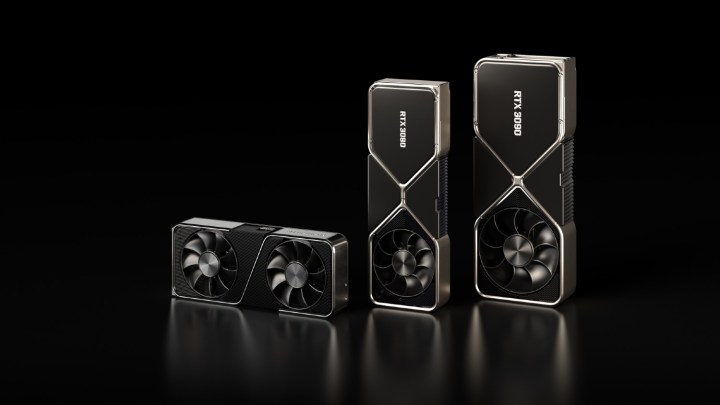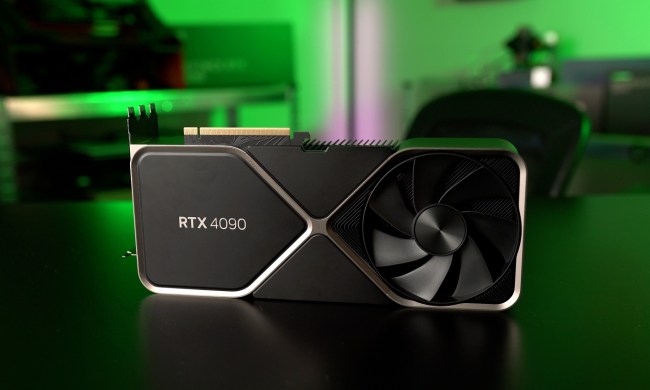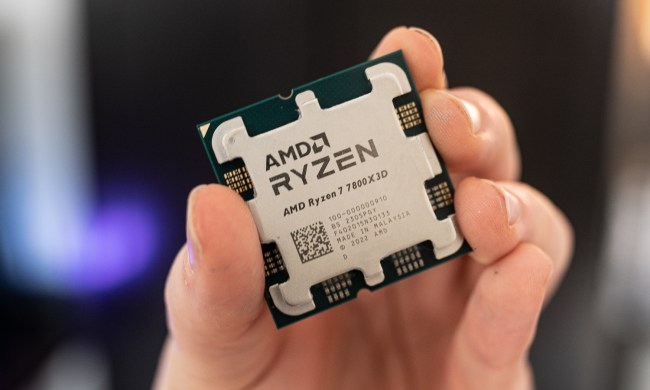Nvidia’s new-generation RTX 3000-series graphics cards are stupendously powerful, from the flagship RTX 3080 to the even more monstrous 8K-capable RTX 3090. But the RTX 3070 is arguably the most exciting of its generation, with enough power to handle 4K gaming at great frame rates, with ray tracing enabled, too. It might even be able to challenge the last-generation flagship, the RTX 2080 Ti.
To find out, we pitted these two cards in a classic head-to-head to see which one comes out on top.
Pricing and availability

The RTX 2080 Ti debuted in September 2018 with a price of $1,200 for the Founder’s Edition. Custom versions had a base price of $1,000, and those with lower frequencies and weaker cooling weren’t much more than that. The most expensive, custom versions could stretch to between $1,400 and $1,900.
At the end of 2020, the 2080 Ti is no longer being manufactured. That makes the stock of new cards extremely limited and prices far outside of the norm — not recommendable. Secondhand versions cost anywhere between $600 and $750 at the time of writing. If you can find one closer to $600, it may be worth considering, depending on your wants and needs.
Nvidia unveiled the RTX 3070 on September 1 alongside the RTX 3080 and 3090. It is set to become available for purchase on October 15, with a Founders Edition price of $500. Custom versions will likely be more costly.
Performance

The RTX 3070 might be the baby of the Ampere generation for now, but it’s still stupendously powerful. Nvidia has made amazing claims about its capabilities, suggesting it could rival the 2080 Ti in a number of scenarios. We’ll need to wait until it’s released and third-parties have provided unbiased, objective benchmark results to know for sure, but we can make some estimations based on its specifications and what Nvidia has shown us so far.
| RTX 3070 | RTX 2080 Ti | |
| GPU | GA104-300 | TU102-300-K1-A1 |
| Interface | PCI Express 4.0 | PCI Express 3.0 |
| CUDA cores | 5,888 | 4,352 |
| Tensor cores | 184 | 544 |
| RT cores | 46 | 68 |
| Base clock | 1,500MHz | 1,350MHz |
| Boost clock | 1,725MHz | 1,545MHz |
| Memory | 8GB GDDR6 | 11GB GDDR6 at 14Gbps |
| Memory speed | 14Gbps | 14Gps |
| Memory interface | 256-bit | 352-bit |
| Bandwidth | 448GBps | 616GBps |
| TDP | 220W | 260W |
The specs table paints an interesting picture of these two cards, showing that despite being two years older and based on a last-generation architecture, it still holds some advantages.
The RTX 3070 has a far greater CUDA core count, but it’s not quite as simple as the numbers suggest. The RTX 3000-series includes its INT32 cores in the count, as they can also operate as more typical FP32 CUDA cores when needed. That means that the RTX 3070 has 2,944 typical CUDA cores and an additional 2,944 that can be used for the same purpose.
The RTX 2080 Ti has 4,352 (FP32) CUDA cores and an additional 4,352 INT32 cores. That means that it has significantly more CUDA cores in total than the RTX 3070, but they are less versatile. They’re also based on a last-generation design and operate at a lower clock speed, so in many games, the RTX 3070 could well pull ahead — especially when it can leverage more of its multi-faceted cores for FP32 calculations. The RTX 2080 Ti isn’t a slouch, though, and in INT32-heavy games and scenarios, it could well hold a performance lead.
Its greater memory capacity and memory bus mean the 2080 Ti has significantly more memory bandwidth, too. That’s unlikely to play a huge part at lower resolutions like 1080p and 1440p, but at 4K, which the 2080 Ti is specifically designed for, it could make a real difference. Some games already demand up to 10GB at 4K, so the 2080 Ti may well hold a performance advantage over the 3070 in particular AAA games at 4K in the near future.

PCI Express 4.0 is a nice addition for the RTX 3070, but since the RTX 2080 Ti didn’t saturate a 16x PCI Express 3.0 slot, it won’t amount to much more than helping to free up lanes on motherboards for additional add-in cards and storage drives.
Ray tracing and DLSS
One area that the RTX 3070 should hold a real advantage is in ray tracing. Although it has fewer RT cores, they are second-generation, which operate at 1.7 times the performance of their predecessors. All else being equal, that would give the 3070 the equivalent of 78 first-generation RT cores. A 15% uptick in RT performance over the RTX 2080 Ti is nothing to sniff at.
Tensor core performance for deep learning super sampling could be comparable between the two, with the RTX 3070 leveraging a third-generation Tensor core design, which can operate at up to 2.7 times the performance of the 2080 Ti’s first generation. Both can take full advantage of DLSS 2.0 for smart upscaling, however, making them both capable 4K cards.
Power and cooling
The RTX 3090 and 3080 enjoy a full, new-generation cooler design from Nvidia, with a push-pull fan configuration across a larger internal heatsink and a newly-designed PCB. The RTX 3070 looks set to be much more traditional, with no V-shaped cutout for the Founders Edition PCB and a dual-fan configuration. It clearly draws inspiration from Nvidia’s new cooler design, however, which has proved impressively capable on the RTX 3080.
With a power draw of 220W, it’s much more demanding than its 2070 counterpart, but 30W less so than the 2080 Ti, which demands 250W in the Founders Edition.
The 2080Ti’s cooler is perfectly adequate, offering enough performance to help the card hit its boost clock without getting too loud. Custom fan curves can help improve performance or noise levels, depending on your preference.
The future’s here, but don’t discount the dethroned king
The RTX 3070 remains at the top of the list for the best graphics card on the market. We anticipate that it will regularly surpass the 2080 Ti in most settings and overall performance, thanks to new architectures that take advantage of the second and third-generation RT and tensor cores. The memory limitations of the 3070 may make it better suited to a high frame rate of 1440p than 4K in the longer term. If you downgrade slightly from a higher resolution, using the 8GB range shouldn’t be a problem.
Of course, cost and availability come into consideration when you’re upgrading. You won’t see the 3070 for sale today but will hit the shelves in the not-so-distant future for a surprisingly accessible price of around 500$ that manufacturers promise will remain the same for a minimum of one year, or even two if we’re lucky. The 2080 Ti is almost nonexistent when new and certainly at nothing close to that kind of price. You might be able to find a decent, gently used 2080 Ti; if it’s being sold for around $500 or $600, it’s worth the investment. Otherwise, you might be waiting a while for the 3070 stock to become stable enough to buy one.
You’ll find that by purchasing the 3070, you will have made a smart decision that will pay off with a high-quality performance for years to come.




